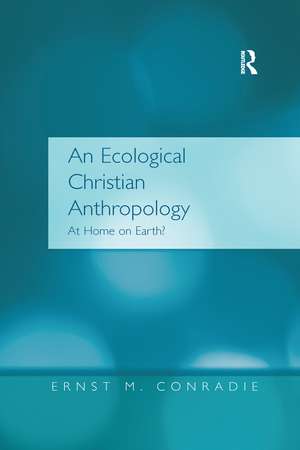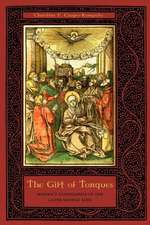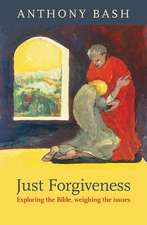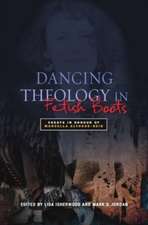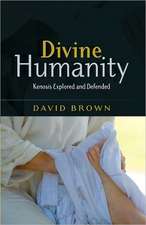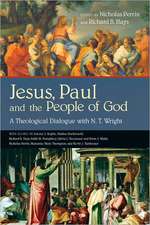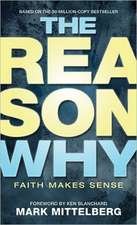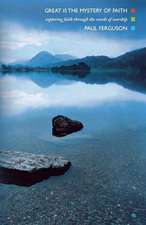An Ecological Christian Anthropology: At Home on Earth?
Autor Ernst M. Conradieen Limba Engleză Paperback – 30 noi 2016
| Toate formatele și edițiile | Preț | Express |
|---|---|---|
| Paperback (1) | 312.43 lei 6-8 săpt. | |
| Taylor & Francis – 30 noi 2016 | 312.43 lei 6-8 săpt. | |
| Hardback (1) | 764.20 lei 6-8 săpt. | |
| Taylor & Francis – 28 ian 2005 | 764.20 lei 6-8 săpt. |
Preț: 312.43 lei
Preț vechi: 371.76 lei
-16% Nou
Puncte Express: 469
Preț estimativ în valută:
59.78€ • 62.42$ • 49.48£
59.78€ • 62.42$ • 49.48£
Carte tipărită la comandă
Livrare economică 05-19 aprilie
Preluare comenzi: 021 569.72.76
Specificații
ISBN-13: 9781138275621
ISBN-10: 113827562X
Pagini: 272
Dimensiuni: 156 x 234 x 22 mm
Greutate: 0.45 kg
Ediția:1
Editura: Taylor & Francis
Colecția Routledge
Locul publicării:Oxford, United Kingdom
ISBN-10: 113827562X
Pagini: 272
Dimensiuni: 156 x 234 x 22 mm
Greutate: 0.45 kg
Ediția:1
Editura: Taylor & Francis
Colecția Routledge
Locul publicării:Oxford, United Kingdom
Cuprins
Contents: Preface; Introduction: toward an ecological Christian anthropology; At home on earth? On human creaturehood; A special place for humans in God's household?; Stewards in the household of God?; Human habits in the human habitat; Bibliography; Index.
Notă biografică
Ernst M. Conradie is Associate Professor in the Department of Religion and Theology at the University of the Western Cape, South Africa.
Recenzii
'Ernst Conradie [...] addresses this issue from a theological perspective. And he does it well. Ashgate publishing house has already provided several books interesting for the Science and Religion dialogue, and this one will not disappoint the reader... The book gives the reader a well-informed and thorough overview of the topics involved, and will, in my opinion, be a very good book to read while preparing for ECST XI... he certainly challenges the reader to articulate and deepen her own position regarding the place of humans in nature.' ESSSAT News 'The book provides a very valuable resource both for the scholar on approaches to Christian environmental concerns as well those involved in church actions around the environment, seeking bliblical and theological basis for their activities.' Journal of Theology for Southern Africa ’...Ernst Conradie has written an impressive book... The great strengths of the book, along with the clarity of its structure, are the breadth and depth of its dialogue partners, and its relentless undaunted trawl through list upon list of issues and their chief protagonists... makes the book an indispensable companion in this rapidly expanding theological field, because it keeps a steady hand while covering a large literature.’ Theology
Descriere
What is the place and vocation of human beings in the earth community? This is the central question that this contribution towards a Christian ecological anthropology addresses. In ecological theology this question is often answered by the affirmation that "We are at home on earth." This affirmation rightly responds to the widespread sense of alienation from nature, to the anthropocentrism that pervades much of the Christian tradition and to concerns about the scope of environmental devastation. This book challenges the affirmation that we are at home on earth, examining natural suffering, anxieties concerning human finitude and especially the pervasiveness of evil. The book investigates contributions to ecological theology, South African and African theology, reformed theology and contemporary dialogues between theology and the sciences in search of a thoroughly ecological Christian anthropology.
